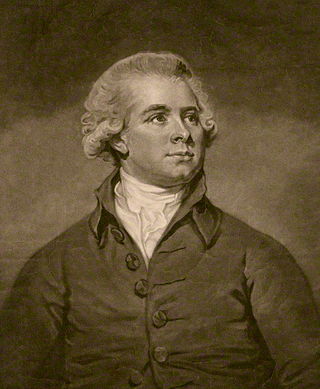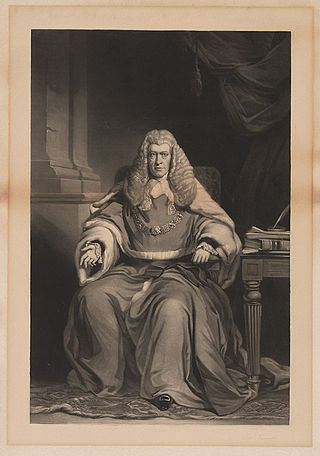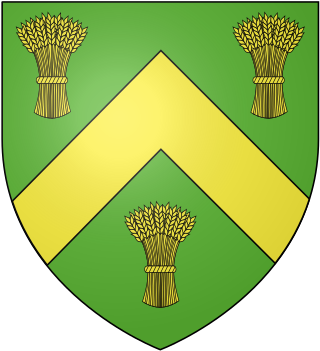
Earl of Buckinghamshire is a title in the Peerage of Great Britain. It was created in 1746 for John Hobart, 1st Baron Hobart.

Earl of Kingston is a title in the Peerage of Ireland. It was created in 1768 for Edward King, 1st Viscount Kingston. The Earl holds the subsidiary titles Baron Kingston, of Rockingham in the County of Roscommon, Viscount Kingston, of Kingsborough in the County of Sligo, Baron Erris, of Boyle in the County of Roscommon, and Viscount Lorton, of Boyle in the County of Roscommon, also in the Peerage of Ireland. He is also a baronet in the Baronetage of Ireland. Between 1821 and 1869 the earls also held the title Baron Kingston, of Mitchelstown in the County of Cork, in the Peerage of the United Kingdom.

Baron Henniker, of Stratford-upon-Slaney in the County of Wicklow, is a title in the Peerage of Ireland. It was created in 1800 for Sir John Henniker, 2nd Baronet, who had previously represented Sudbury and Dover in the House of Commons. His son, the second Baron, also sat as a Member of Parliament. In 1792 he assumed by Royal licence the additional surname of Major. He was childless and was succeeded by his nephew, the third Baron. He assumed the additional surname of Major by Royal licence in 1822. His son, the fourth Baron, represented Suffolk East in Parliament. In 1866 he was created Baron Hartismere, of Hartismere in the County of Suffolk, in the Peerage of the United Kingdom. This title gave him and his descendants an automatic seat in the House of Lords. He was succeeded by his son, the fifth Baron. He also sat as Member of Parliament for Suffolk East and later held minor office in the Conservative administrations of Benjamin Disraeli and Lord Salisbury. His grandson, the eighth Baron, was a prominent diplomat and notably served as British Ambassador to Jordan and to Denmark. As of 2014 the titles are held by the latter's son, the ninth Baron, who succeeded in 2004.

Baron Henley is a title that has been created twice: first in the Peerage of Great Britain and then in the Peerage of Ireland. The first creation came in 1760 in favour of Sir Robert Henley, Lord High Chancellor of Great Britain, when he was created Lord Henley, Baron of Grainge, in the County of Southampton. In 1764 he was further honoured when he was made Earl of Northington. On the death of his son, the second Earl, both titles became extinct. Lady Elizabeth Henley, youngest daughter of the first Earl and co-heiress of the second Earl, married the diplomat Morton Eden. In 1799, the Henley title was revived when Eden was created Baron Henley, of Chardstock in the County of Dorset, in the Peerage of Ireland. Their son, the second Baron, assumed the surname of Henley in lieu of Eden and notably published a biography of his maternal grandfather. His son, the third Baron, sat as Liberal Member of Parliament for Northampton. In 1885 the Northington title was also revived when he was created Baron Northington, of Watford in the County of Northampton, in the Peerage of the United Kingdom. This title gave the Barons an automatic seat in the House of Lords. The fourth baron Frederick Henley was an educated man who served as JP in Northamptonshire and married Augusta, daughter of Herbert Langham 12th baronet.

Baron Churston, of Churston Ferrers and Lupton in the County of Devon, is a title in the Peerage of the United Kingdom. It was created in 1858 for the former Conservative Member of Parliament, Sir John Yarde, 3rd Baronet. He had earlier represented South Devon in the House of Commons. Two years later, in 1860, he assumed by Royal licence the additional surname of Buller. As of 2023 the titles are held by his great-great-great-great-grandson, the sixth Baron, who succeeded his father in that year.
Claudius Amyand was a French surgeon who performed the first recorded successful appendectomy.

There have been five baronetcies created for people with the surname Pollock, one in the Baronetage of Nova Scotia and four in the Baronetage of the United Kingdom. As of 2017 three of the creations are extant. These three creations derive from the same family to which the 1703 baronetcy was granted; the Pollock ancestor of Sir Frederick Pollock, 1st Baronet and Sir George Pollock, 1st Baronet married his cousin, daughter of Sir Robert Pollock, 2nd Baronet.

Sir George Cornewall, 2nd Baronet of Moccas Court, Herefordshire, was a British politician who sat in the House of Commons between 1774 and 1807.
There have been three baronetcies created for members of the Gore family, all in the Baronetage of Ireland. All three titles are extant. The family also holds two earldoms and a barony.
The Tapps, later Tapps-Gervis, later Tapps-Gervis-Meyrick Baronetcy, of Hinton Admiral in the County of Hampshire, is a title in the Baronetage of Great Britain. It was created on 28 July 1791 for the landowner and developer George Tapps. The second Baronet sat as Member of Parliament for New Romney and Christchurch. He assumed in 1835 the additional surname of Gervis. The third Baronet was high sheriff of Anglesey in 1878. He assumed in 1876 by Royal licence the additional surname of Meyrick according to the will of Owen Fuller Meyrick, a relative on his mother's side, from whom he inherited the Bodorgan estate on the Isle of Anglesey. The fourth Baronet was high sheriff of Hampshire in 1900. The fifth Baronet was high sheriff of Anglesey in 1939.

The Beauchamp-Proctor, later Proctor-Beauchamp Baronetcy, of Langley Park in the County of Norfolk, is a title in the Baronetage of Great Britain. It was created on 20 February 1745 for the twenty-two-year-old William Beauchamp-Proctor, subsequently Member of Parliament for Middlesex. Born William Beauchamp, he assumed the additional surname of Proctor according to the will of his maternal uncle, George Proctor, of Langley Park, Norfolk. The second Baronet married Mary Palmer, a beauty who was the subject of portraits by George Romney and Benjamin West. The third Baronet was an admiral in the Royal Navy.
Sir William Duff-Gordon, 2nd Baronet, known as William Gordon until 1815, was a Scottish politician.
There have been three baronetcies created for persons with the surname Dryden, one in the Baronetage of England and two in the Baronetage of Great Britain. Two of the creations are extant and are joined under a single holder since 1874.
There have been three baronetcies created for persons with the surname Clayton, two in the Baronetage of Great Britain and one in the Baronetage of the United Kingdom. One creation is extant as of 2021.
There have been two baronetcies created for persons with the surname Coghill, both in the Baronetage of Great Britain. One creation is extant as of 2008.

The Baker, later Rhodes, later Baker Wilbraham Baronetcy, of Loventor in the County of Devon, is a title in the Baronetage of Great Britain. It was created on 19 September 1776 for George Baker, Physician to George III and President of the Royal College of Physicians. His son, Sir Frederick Francis Baker, 2nd Baronet, FRS was accidentally killed by the vane of a windmill. The fourth Baronet, assumed in 1878 by Royal licence the surname of Rhodes in lieu of his patronymic. He never married and was succeeded by his younger brother, the fifth Baronet. He married Katharine Frances, daughter and heiress of General Sir Richard Wilbraham, nephew of Edward Bootle-Wilbraham, 1st Baron Skelmersdale. In 1900 he assumed by Royal licence the additional surname of Wilbraham. His son, the sixth Baronet, served as First Church Estates Commissioner, as Chancellor of the Dioceses of York, Truro, Chelmsford and Durham and as Vicar-General of the Provinces of York and Canterbury. On his death the title passed to his son, the seventh Baronet. He was High Sheriff of Cheshire in 1963 and also a deputy lieutenant of the county. In 1980 the title passed to his son, Sir Richard Baker Wilbraham, the eighth Baronet, who was Deputy Lieutenant of Cheshire in 1992. Following his death in 2022, he was succeeded Sir Randle Baker Wilbraham, the current 9th Baronet.

The Smith, later Bromley, later Pauncefote-Bromley, later Bromley-Wilson, later Bromley Baronetcy, of East Stoke in the County of Nottingham, is a title in the Baronetage of Great Britain. It was created on 31 October 1757 for the banker George Smith, High Sheriff of Nottinghamshire from 1757 to 1759. He was the eldest son of Abel Smith I (1686–1756) of Nottingham, the 2nd son of Thomas Smith I (1631–1699), the founder of Smith's Bank in Nottingham. His younger brothers included: Abel Smith II (1717–1788) and John Smith, ancestor of Julian Pauncefote, 1st Baron Pauncefote.

Sir George Amyand, 1st Baronet was a British Whig politician, physician and merchant.
There have been three baronetcies created for persons with the surname Duncan, one in the Baronetage of Great Britain and two in the Baronetage of the United Kingdom. All three creations are extinct.

Velters Cornewall was an English politician.












